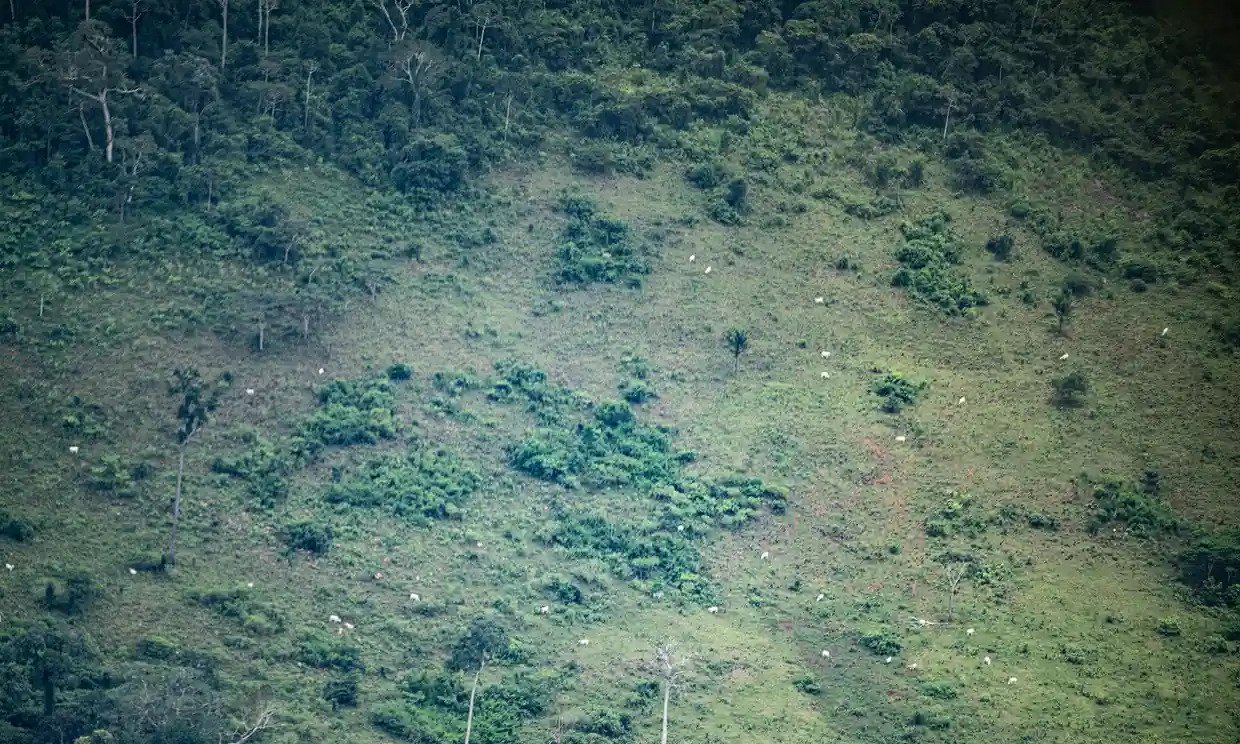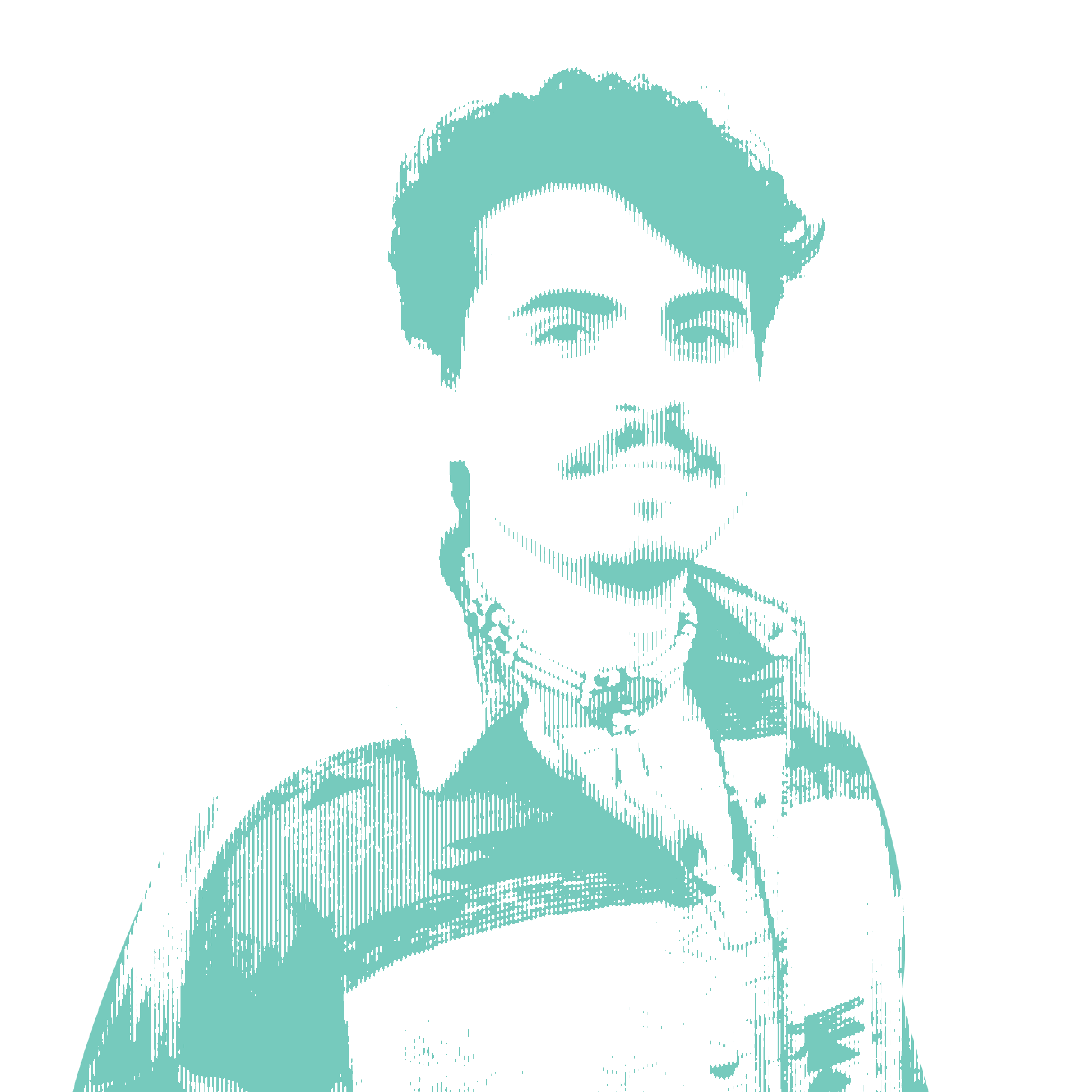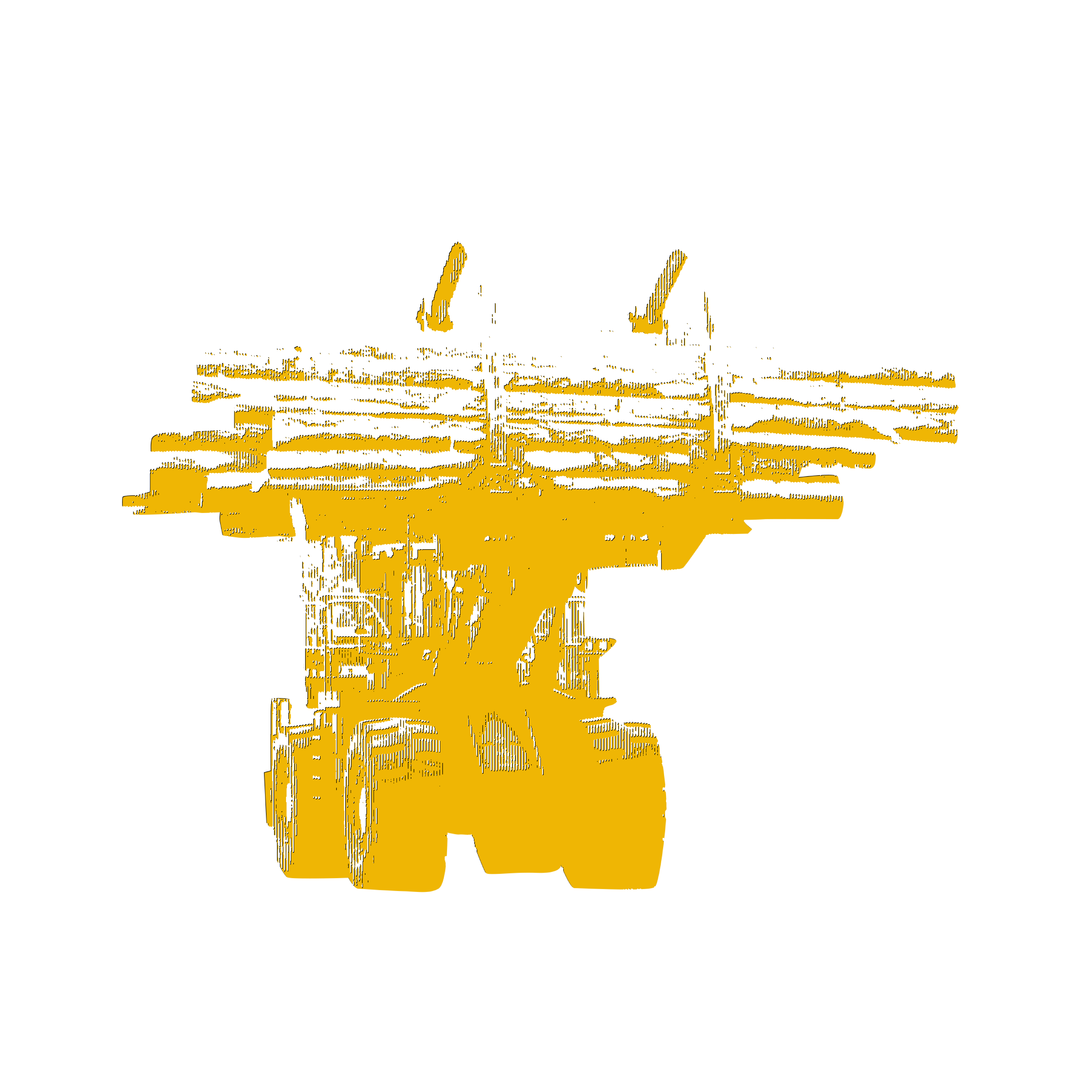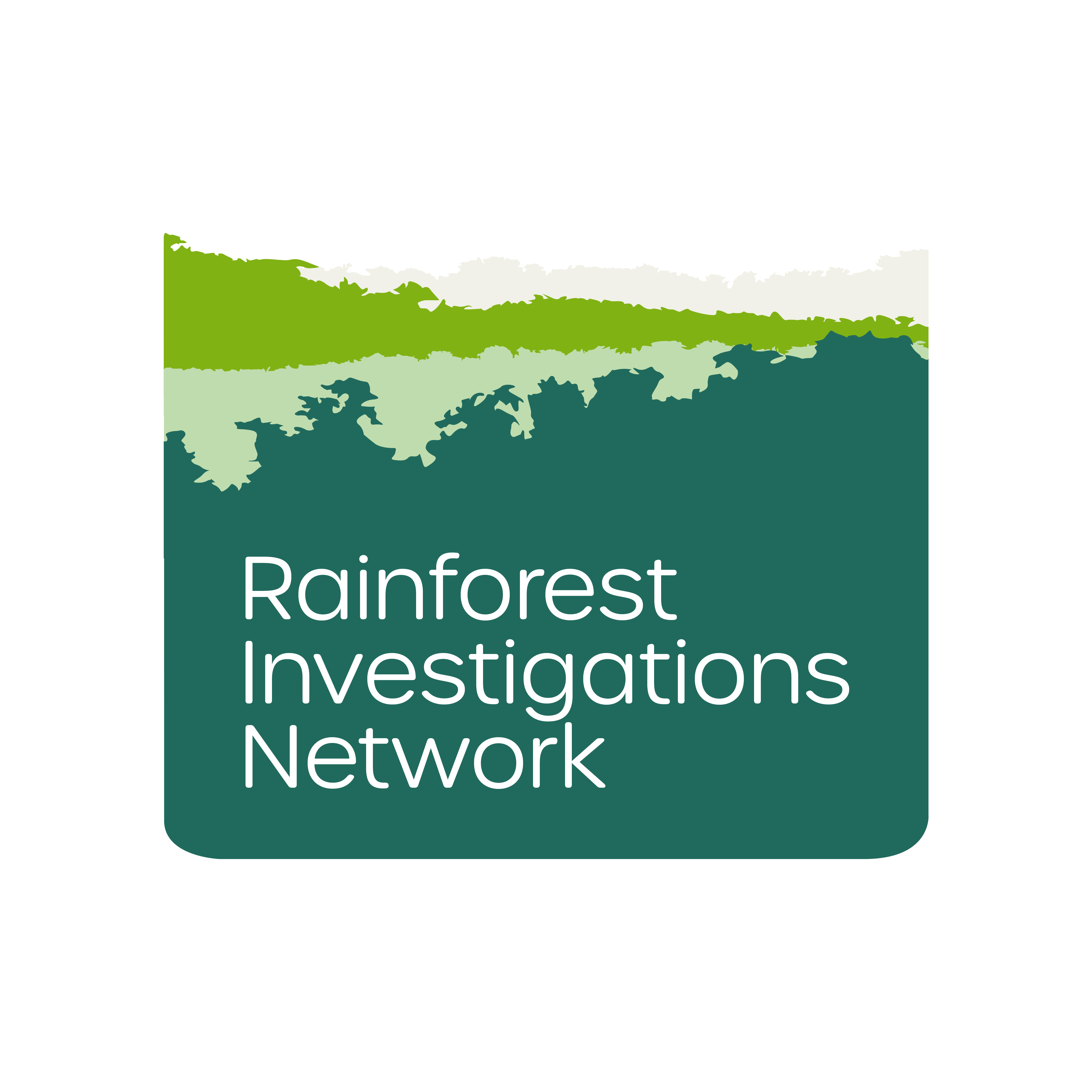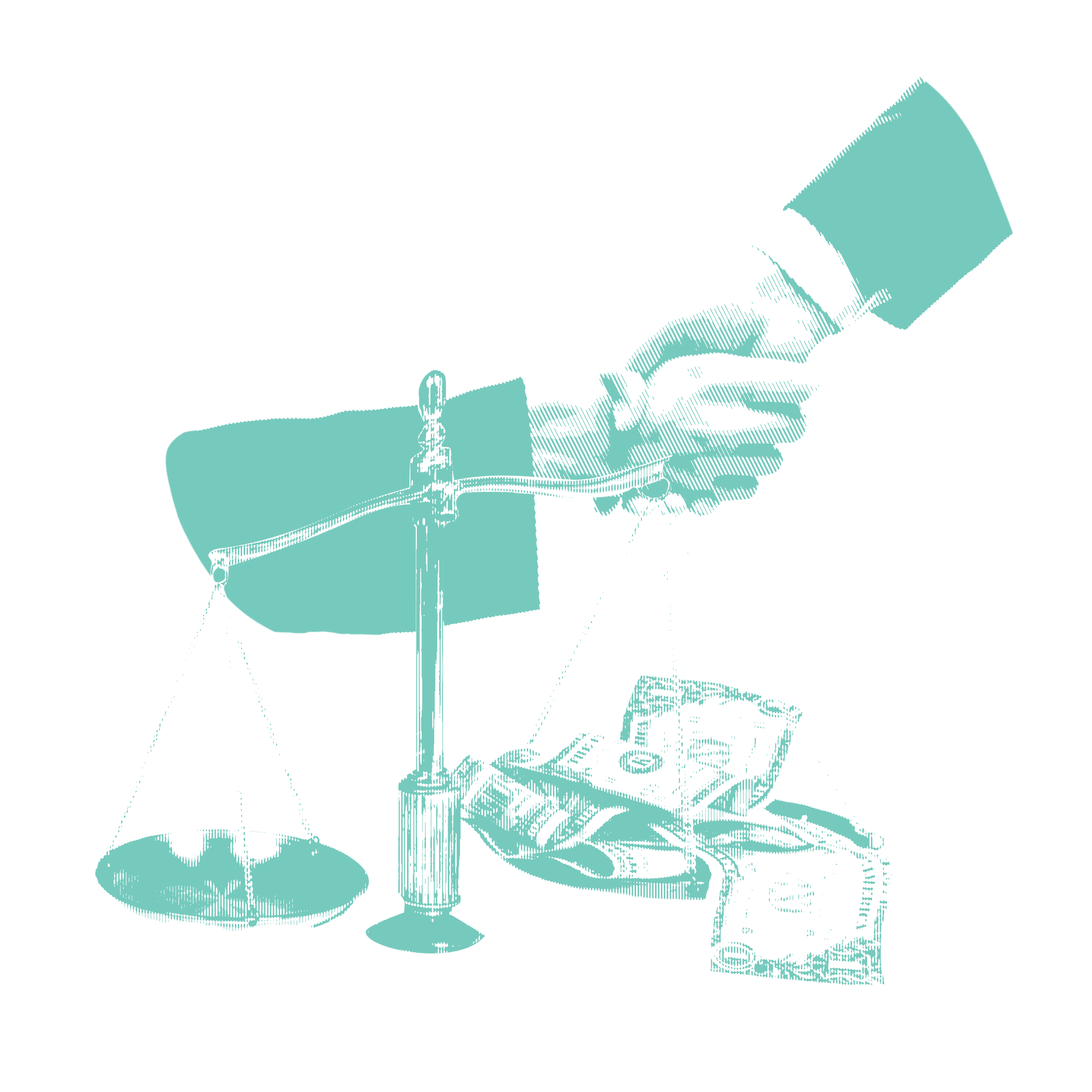For the first time an investigation has linked collagen powder to violence against Indigenous peoples in Brazilian forests.
The stench arrives before the lorries do. They are carrying skins that were stripped from cattle carcasses days ago. Flies are everywhere.
The lorries’ destination is Amparo, a small industrial town in São Paulo state, southeastern Brazil. Here, Rousselot, a company owned by the Texan business Darling Ingredients, extracts collagen – the active ingredient in health supplements at the centre of a global wellness craze.
But while collagen’s most evangelical users claim the protein can improve hair, skin, nails and joints, slowing the ageing process, it has a dubious effect on the health of the planet. Collagen can be extracted from fish, pig and cattle flesh, but behind the wildly popular “bovine” variety in particular lies an opaque industry driving the destruction of tropical forests and fuelling violence and human rights abuses in the Brazilian Amazon.

Whistleblowers and others in possession of sensitive information of public concern can now securely and confidentially share tips, documents, and data with the Pulitzer Center’s Rainforest Investigations Network (RIN), its editors, and journalists.
An investigation by the Bureau of Investigative Journalism, the Guardian, ITV and O Joio e O Trigo has found that tens of thousands of cattle raised on farms damaging tropical forests were processed at abattoirs connected to international collagen supply chains.
Some of this collagen can be traced all the way to Nestlé-owned Vital Proteins, a major producer of bovine collagen supplements championed by the actress Jennifer Aniston. Vital Proteins is sold globally – including online on Amazon, in Walmart stores in the US, in Holland & Barrett and Boots in the UK and in Costco in both countries.
The investigation – the first to connect bovine collagen with tropical forest loss and violence against Indigenous peoples – found at least 2,600 sq km of deforestation linked to the supply chains of two Brazil-based collagen operations with connections to Darling: Rousselot and the recently acquired Gelnex. It is unclear how much of this deforestation, which was calculated by the Center for Climate Crime Analysis, is linked to Vital Proteins.
Experts see the preservation of the Amazon as key to tackling climate change. So too is upholding the rights of its Indigenous people, who are widely recognised as the best forest guardians. Nearly half of the best-preserved areas of rainforest are within Indigenous people’s territories.
In a response to its buyers after TBIJ approached retailers for comment, Vital Proteins told them that it would “end sourcing from the Amazon region effective immediately”.
Darling Ingredients told TBIJ that the company and its subsidiary Rousselot monitor their suppliers and remove those that don’t meet responsible sourcing criteria. A spokesperson added that the companies “play a crucial role” in “collecting and repurposing animal byproducts that would otherwise be discarded”. It said it could not comment on Gelnex since its October 2022 acquisition has not been formalised.
Holland and Barrett said it is committed to responsible sourcing and making sure supply chains are not contributing to deforestation. It added that it raised the allegations in this investigation with Vital Proteins and would consider corrective action if further policy breaches were found.
A Boots spokesperson said: “We are in touch with our suppliers to provide reassurances around the sourcing of collagen.”
Costco said it took the allegations seriously and had contacted its suppliers. Walmart and Amazon declined to comment.
The by-product myth
Bovine collagen is a so-called by-product of the cattle industry, which in Brazil accounts for 80% of all Amazon forest loss.
But “by-product” is a misleading term, according to the Environmental Investigation Agency, an advocacy group headquartered in London. “I wouldn't call any of them by-products. The margins for the meat industry are quite narrow, so all of the saleable parts of the animal are built into the business model,” Rick Jacobsen, commodity policy manager at the EIA, said.
Non-meat products account for just under a half a slaughtered cow's weight and can generate up to a quarter of meatpackers’ incomes, according to estimates by Bain & Co, a market research group. By far the most valuable “by-products” are the cattle hides used to make leather and collagen.
The collagen industry as a whole is estimated to be worth more than $4bn a year.
What is collagen?
Collagen is a protein that is primarily derived from cattle, pigs or fish. In recent years it has surged in popularity as a health and food supplement because of its perceived benefits; advocates claim it helps maintain a healthy body, especially muscles, bones, joints and skin.
Bovine collagen is extracted from the hides of slaughtered cattle and has become particularly prized for use as a healthcare supplement.
The global collagen sector is estimated to be worth almost $4bn annually, with some forecasts showing that this will more than double by 2032.
Although cattle slaughtered in the US and Europe are also used to make collagen, Brazil’s vast beef and leather industry make it one of the world’s biggest producers. Many wellness companies, including Vital Proteins, a Nestlé brand, now offer “grass-fed Brazilian bovine collagen”.
JBS, one of Brazil’s biggest meatpackers, recently built a dedicated collagen plant to expand its position in the market. Darling Ingredients, the US food giant, owns Rousselot, a subsidiary making collagen in Brazil and plans to expand its capacity with the recent acquisition of Gelnex.
Once it has been processed and powdered, the collagen extracted in Brazil can be shipped all over the world.
Unlike beef, soy, palm oil and other major food commodities, collagen is not covered by forthcoming due diligence legislation in the EU and UK designed to tackle deforestation. Collagen companies therefore have no obligation to track its environmental impacts.
“It’s important to ensure that this type of regulation covers all key products that could be linked to deforestation,” Jacobsen said.
Most livestock-driven deforestation can be attributed to companies’ indirect suppliers, according to Ricardo Negrini, a federal prosecutor in Brazil’s Pará state who monitors beef processors’ climate commitments. Cattle are often moved from farm to farm for different stages of rearing, so a cow born on deforested land may be fattened for slaughter at a “clean” finishing ranch. But Negrini said that, today, all meat companies have the capacity to track the cattle they buy.
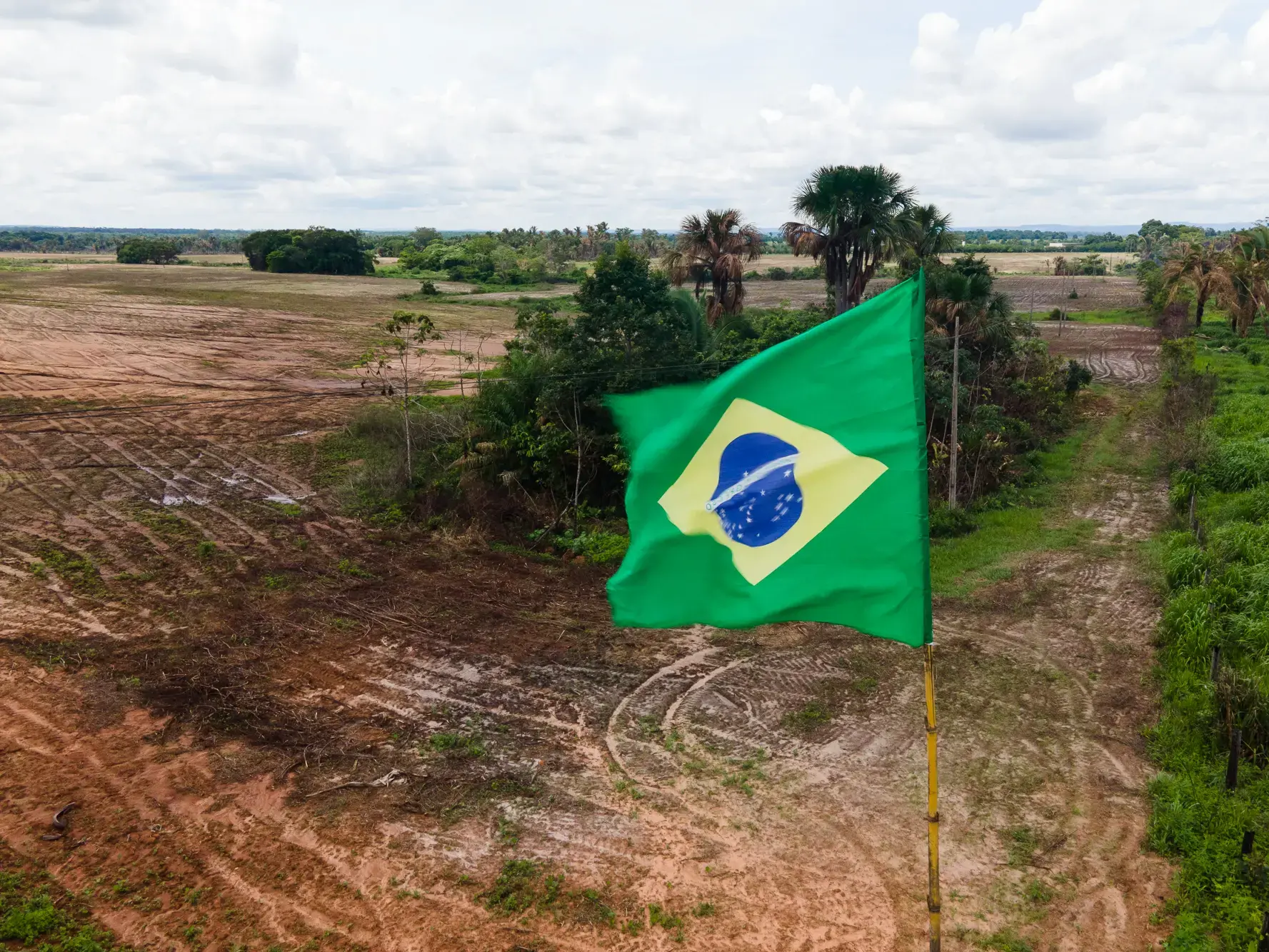
With sales of beef, leather and collagen booming, more and more forest has been felled and replaced by pastures in recent years, with land often seized illegally. Virtual impunity for land-grabbing during the Bolsonaro government also fuelled attacks on traditional communities. In 2021, the third year of his presidency, there were 305 invasions of indigenous lands. This is three times more than the 2018 figures reported by the Catholic Church’s Indigenous Missionary Council.
“No cattle ranching expansion in the Amazon can take place without violence,” said Bruno Malheiro, a geographer and professor at the Federal University of Southern and Southeastern Pará.
A short drive from Malheiro’s office in Marabá, the municipality with Brazil's third largest cattle herd, the landscape is flattened by pastures. Lorries constantly shuttle cattle to the region’s numerous abattoirs.
In the neighbouring municipality of Bom Jesus do Tocantins, a green sign smattered with bullet holes stands next to the road that leads to the Mãe Maria Indigenous reserve. From above, this land, home to the Gavião people, is a dark green parcel of standing rainforest in a patchwork of ranches.
For Kátia Silene Akrãtikatêjê, the first woman to become a leader of the Gavião people, it’s like living on an island. Her people feel “surrounded, suffocated”, she told TBIJ. The Mãe Maria reserve is the only territory in hundreds of miles that still resembles the imposing Amazon rainforest.
Malheiro calls it “a process of territorial confinement”. For the Gavião, maintaining the forest where they hunt, fish, farm and collect seeds comes with threats, attempted invasions and arson.
In September last year, an entire village was burned down. A school, dozens of houses and a patch of forest was reduced to ashes. The fire was no accident, they say, and the community still lives in fear.
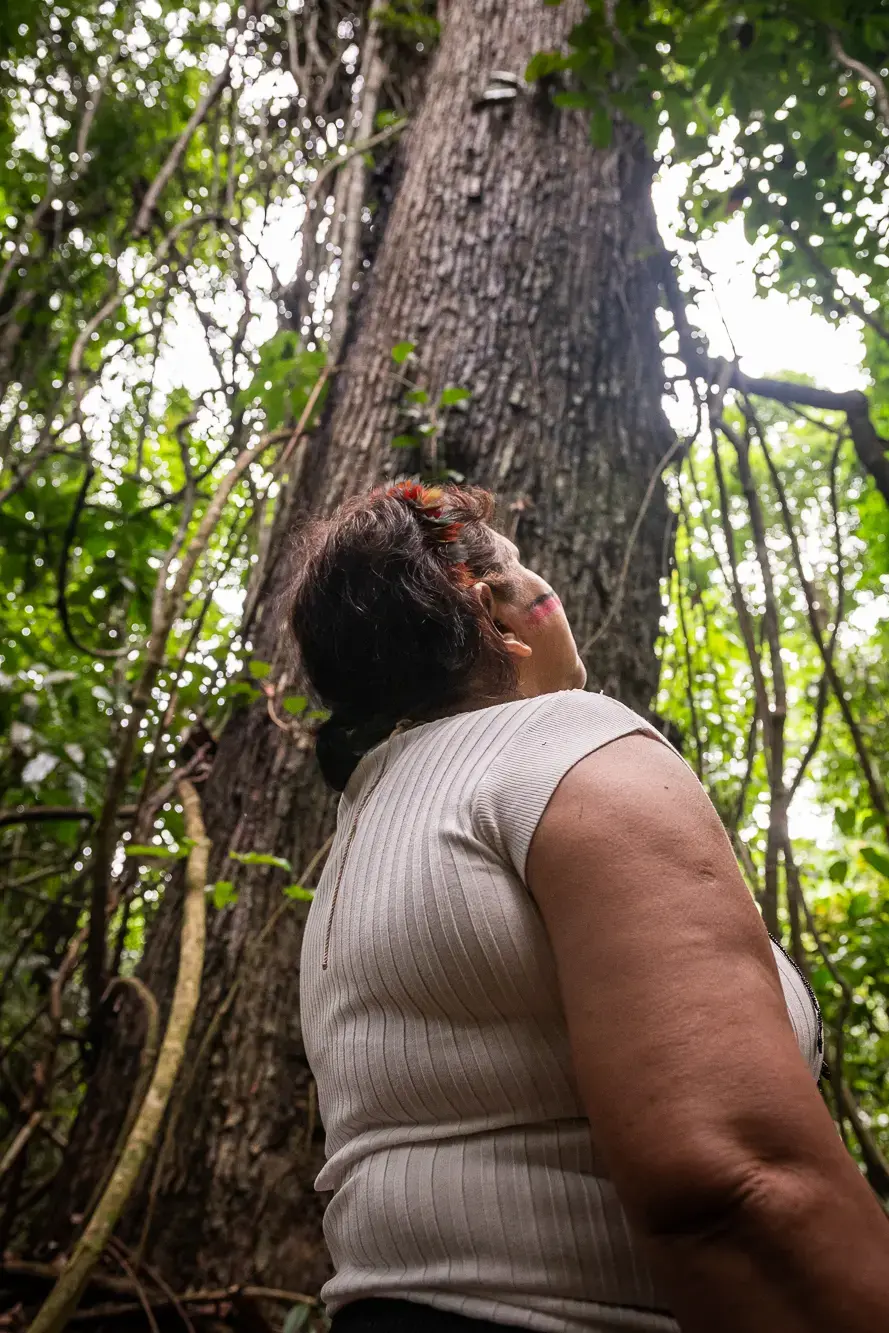
“[The farmers] destroy what is theirs, and invade what is ours. I can’t understand why they destroy everything,” the Indigenous leader said.
According to José Batista Afonso, a lawyer and land rights defender working with Pastoral Land Commission in Marabá, the region offers a glimpse of what the whole Amazon could look like if ranching continues to expand unchecked.
Murky supply chains
The supply chains for Brazilian bovine collagen are highly complicated, with numerous middlemen involved in procuring and processing.
Rousellot’s “Peptan” collagen is the world’s leading brand and it exports this bovine collagen to the US and Europe, where it has multiple manufacturing plants.
Rousselot sources cow skins from BluBrasil, a tannery located within a complex in Bataguassu, Mato Grosso do Sul. That complex is owned by Marfrig, one of Brazil’s “Big Three” beef businesses. Marfrig’s cattle suppliers have been linked to the destruction of tropical forests and encroachment on the territory of the Guarani Kaoiwá Indigenous People.
In 2021, the plant purchased animals from the Campanário farm, a large property violating the Guarani Kaiowá territory in Laguna Carapã, also in Mato Grosso do Sul. The area is notorious for its high rate of violence against Indigenous people. Marfrig told the Bureau that only a small portion of the property is on top of the ancestral land, which the company says is not fully recognised as Indigenous territory. The owner of Campanário farm did not respond to the Bureau’s request for comment.
A 2021 Greenpeace report also found that the same Marfrig plant was linked to the destruction of the Pantanal, another Brazilian biome and cradle of biodiversity.
Marfrig confirmed the supplier in question was registered as an indirect supplier, but said it was considered compliant with its policies at the time. The company added that monitoring indirect suppliers is "one of the biggest challenges of the Brazilian livestock chain", but it works "continuously to mitigate any link between illegal deforestation and other irregularities in its production chain, both in the Amazon and in the other biomes".
Gelnex, meanwhile, sells collagen to healthcare, food ingredients and other manufacturers globally.
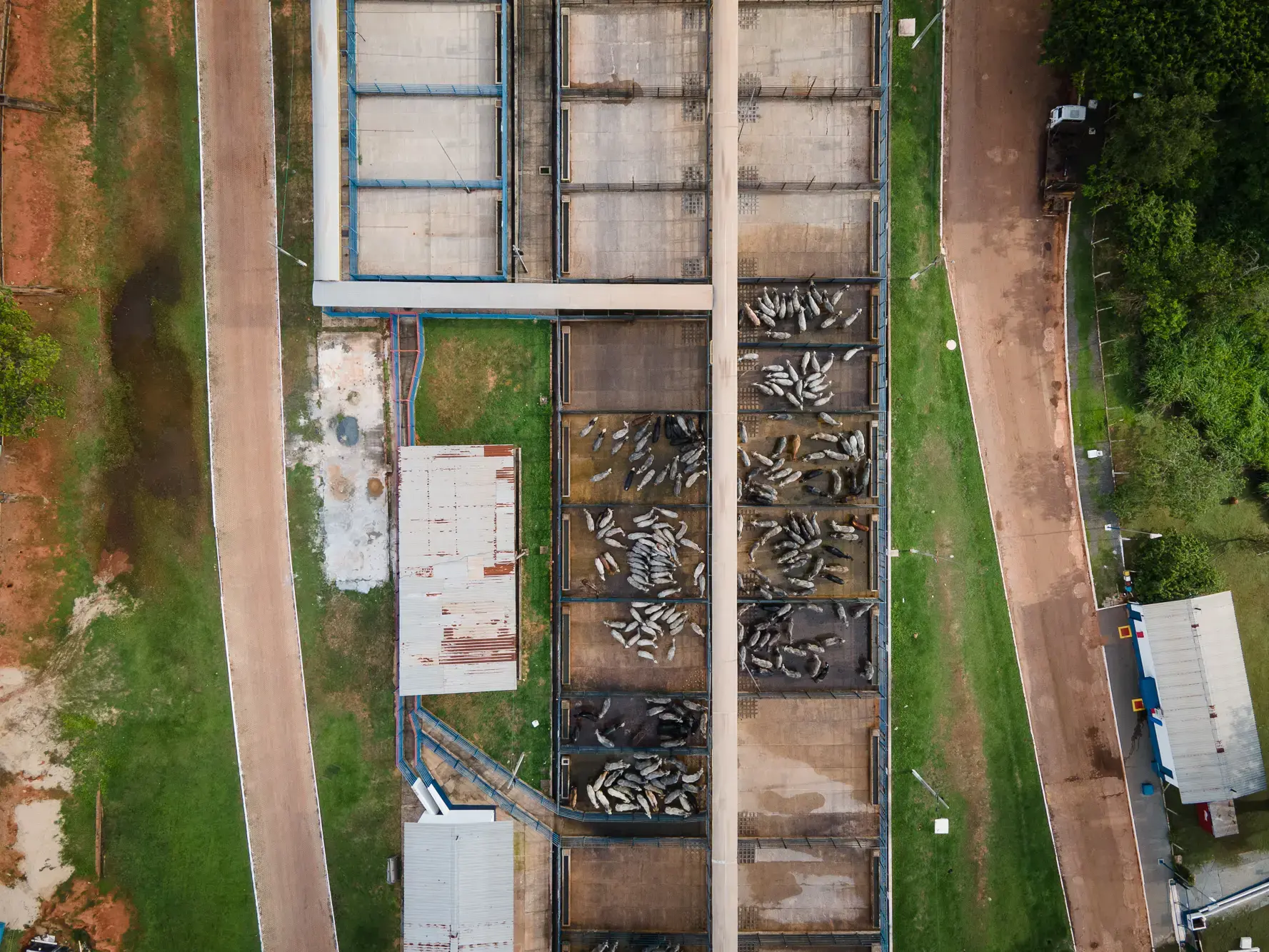
It sources cattle hides from Durlicouros, a Brazilian leather manufacturer that cleans and de-fleshes them after slaughter. At this stage, the raw hides are treated to prevent rot before the layers of skin are split into separate leather and collagen production chains.
Durlicouros procures its hides from cattle slaughtered at JBS and Minerva abattoirs, according to multiple interviews with truck drivers and other local sources. Hundreds of those cattle are raised on farms encroaching on Mãe Maria and other Indigenous lands.
In a recent call with investors, the CEO of Darling Ingredients, Randall C Stuewe, said the acquisition of Gelnex would massively boost the company’s collagen production.
Gelnex told TBIJ: “All raw materials used by the company are sourced from approved suppliers, duly registered before the applicable regulatory agencies, and legally authorised to operate in accordance with applicable laws.”
Tannery firm DurliCouros said it “meets the strictest national and international sustainability standards”. Both DurliCouros and BluBrasil were assigned a “gold” rating by the Leather Working Group (LWG), an industry association that assesses members’ sustainability. LWG, the industry’s association, told the Bureau that this is a “complex topic” and that it’s working towards a standard of “100% deforestation and conversion free by 2030 or earlier”.
JBS said that although there was deforestation on some of the farms identified, its purchases from these were “fully compliant” with its procurement and monitoring protocols, and that others had adhered to its standards.
Brazil’s third largest meatpacker, Minerva, said that it works to ensure that cattle purchased do not originate from properties with illegally deforested areas, adding that it monitors “100% of direct suppliers”.
A spokesperson for Jennifer Aniston referred TBIJ to Nestlé.
Nestlé said that the allegations raised are not in line with its commitment to responsible sourcing and has contacted its supplier to investigate this matter. It added that it is taking steps to ensure its products are deforestation-free by 2025.
- View this story on The Guardian




